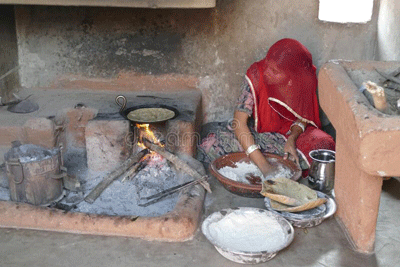Goa is abuzz with excitement as vintage bike and car owners, users, collectors and fans are decking […]

WHY MARRIAGE COUNSELLING IS MUST!
Cover Story, June 12- June 18, 2021 June 11, 2021EQUAL STATUS: In the age of the social network, couples want an equal relationship. Which is why in Catholic weddings the part dealing with obeying the husband is left out!
By Rajan Narayan
Times have changed. Young women do not want to be unpaid maid servants for their husband and in-laws! Husbands in turn do not want a gungi gudiya. Which is why it is important that couples who are planning to get married should understand each other’s hopes and aspirations.
I HAVE been married not once but twice. I have also know several people whose marriages have broken down. The US poet Ogden Nash, suggests that “a little incompatibility is a good thing in marriage; if he has income and she is pat-able.” Unfortunately, this is not necessarily true in real life. Melinda married Bill Gates the owner of Microsoft. She was a computer programmer in the company. She recently broke up not because she got a big fat alimony but because of questions about the moral conduct of Bill Gates.
When I married for the first time, it was a semi-arranged marriage. I had got my sister, whose responsibility I had assumed, married. I was almost 30 years and had achieved a professional landmark in the fact that was the editor of my first magazine at the age of 27 years. The magazine was called Mirror,’ which was the poor man’sReaders Digest.’
My sister kept pestering me to get married. It is not as though I did not have girlfriends. Most of them were part of the left movement and wanted a commitment from me that I would also become a full time member of the left movement. And then there was the then young woman who was the daughter of one of the six wives of the original owner of the `Times of India,’ Ramkrishna Dalmiya. Unfortunately, she preferred a colleague in the same media organisation I was working for.
KEEN TO MARRY
My sister dropped in at my office and told me that there was a girl from Nagpur. An art college student who was keen on getting married. She suggested that I should meet her. I decided that I had nothing to lose and told my sister to bring the young woman to my cabin in the `Mirror.’ After working hours several friends would drop in at my cabin office and it would turn into a bar.
I’d completely forgotten that the young woman was expected. If she was shocked to see a group of young man drinking in the office, she did not show it. I chased away my friends away and we decided to walk to a restaurant close by on the terrace of the Churchgate Railway station. We kept asking each other questions as though we were interrogating criminals. At some stage I decided it would not work and decided to drop her back at her aunt’s place in the suburbs.
Somewhere along the way I thought I’d give it a second try. We stopped the cab and went to another restaurant. I offered her a glass of beer, partly to see if she objected to my drinking and partly to see how broad minded she was. She decided to share my beer and this broke the ice. I found out that she was open to ideas and was well read. We decided that we may as well give marriage a try.
QUICK MARRIAGE
SO WHEN we went back to her aunt’s place where her mother was waiting, we told them we had decided to get married. Much to their shock. We spent a few days getting to know each other. About a month later we officially got married and ironically, in Nagpur, headquarters of the RSS.
The now famous international lawyer, Harish Salve, was a close neighbour of her mother’s place. We had a traditional Hindu marriage with all the saath phera. The uncle with whom her widowed mother was staying had organised a weekend honeymoon at a wildlife park close by. This was when we encountered the first obstacles.
This might seem absurd these days of social network. I’m referring here to the mid-70s when there was no Facebook, WhatApp or any social media. Anyway both of us in our mid-20s did not know anything much about how to conduct a sexual relationship. Unfortunately, the motion in those days was that sex was the right of the male. The concept that the women had an equal right to enjoy and participate in suhag raat was not widely accepted in the middle class or rather the lower middle class.
SEXUAL IGNORANCE
I WAS totally ignorant about how to prepare my partner for her first sexual encounter. It turned out to be a total disaster. To the extent that at some stage she ask me to get a book so that both of us could learn how to have a pleasant experience together! We returned together to Mumbai. I went back to work and she joined the JJ School of Art to complete her degree in art.
I was not aware that then that she was obsessed with art just as I was passionate about journalism. We had failed to discuss our mutual interests and passions during the time we brief times we had spent with each other before marriage. There were no elders or siblings either who had the time to advise us.
She wanted to spend all her time in art galleries. While I appreciated good art and had even been an art critic for the `Financial Express’ for a couple of years for want of anything else, I was more concerned with my career. And, of course, I continue to be fully committed to the left movement. Indeed, Anuradha and Kobad Gandhi, who had got married and gone off to the jungles to liberate the tribals, were good friends of mine.
My wife was not interested in social causes at all. As time went by I discovered even larger differences between us. Having been part of the left I did not place much importance in money. I was not part of the material acquisitive world. Which in simple English meant that my life was not centred on acquiring a fried or a washing machine or a car. When we got married I did not have a fridge, let alone a gas stove. I had been living a totally impractical life as a journalist, dividing my time between my job and my friends from the left, very often staying over at their place for the night.
But after marriage my wife and me lived in a rented place for a couple of years, then we bought a flat on a loan I took from HDFC. She was keen on furnishing it in style. I was not interested as I was comfortable with the bare essentials. I was more concerned about textile mill workers and Dalits who had much less than me by way of material comfort and it looked they were happy!
Perhaps if as a newly married couple we had some social counselling we would have discovered our major difference in attitudes to life. We would have discovered that we would not exactly made for each other. I had little or no interest in hundreds of expensive books on art that she kept on purchasing on instalment basis. She preferred the company of artists and through my contacts spent long stretches away studying arts or travelling abroad on scholarships.
Our marriage was spent more apart than together. I preferred the company of my left friends who were trade union leaders or Dalit poets. So it was not surprising that within a decade of marriage and some bitter notes we thought about parting company.
I RECALLED that she asked me whether I would mind very much if we could get a divorce so that she could marry an artist she was in love with. The artist was among the best known not only in country but globally. He had studied art in Paris. It did not help that he came from a very wealthy family and could give her all the luxuries I could neither afford nor was interested in. But I was sensible enough to realise that there was no sense in continuing a marriage of so many different tastes in life.
We opted for a civil divorce which meant that we could separate by mutual consent in the Family Court. This was specially meant for people who wanted to separate by mutual agreement. Absurdly, the only time we underwent any counselling was before our divorce. One of the rules of the Family Court is that the couple should meet the officially appointed counsellor whose job was to persuade couples not to break-up and to give the marriage another chance.
In our case, we must have convinced the counsellor who happened to be a friend! So we got our divorce without any difficulty. While most peoples mourn a divorce and are very unhappy we celebrated our divorce by having a 5-star dinner at the historical Taj Mahal Hotel at the Gateway of India downtown Bombay.
Sometimes when I remember my first marriage I think a little pre-marriage counselling would have saved a lot of unhappiness for both of us. The Church in Goa makes it compulsory for couples intending to get married to attend a three- day marriage counselling course. I’m sure this must have saved a lot of marriages and prevented many a divorce, or even in some cases a marriage being called off amicably. So I think marriage counselling regardless of whether it’s a Hindu, Catholic, Muslim or any other marriage, can go a long way towards two people of the opposite sex understanding each other enough to seal a marriage or per chance call it off courtesy some good counselling.














